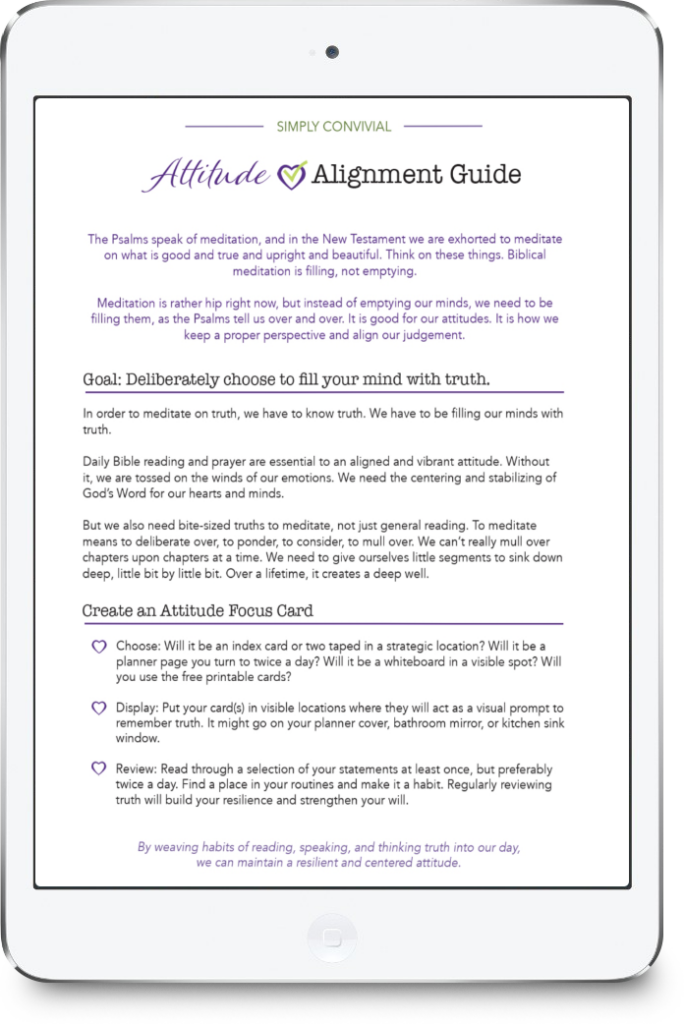What a Novel Taught Me about Housework
Years ago, when my third born was just a baby, I hated housework.
I was torn between wanting to be a good, competent homemaker and thinking that the state of my bedroom or the kitchen wasn’t a big deal. I could get meals on the table, keep things stocked, and complete a project just fine. But the day-in day-out routine tasks were a drag.
I’m not going to say that I love those routines now or that I totally rock them, because I don’t. But I am learning to love them.
And it all started back then, when my third born was just a baby, and I was reading novels.
I read Mansfield Park by Jane Austen.
In it, the heroine returns from her privileged uncle’s country home to her own family’s dingy home near the docks. The dishes are given a cursory wipe, but not actually cleaned. cough I do that with my cookie sheets and muffin tins. The bedrooms are a wreck because nobody cares about the state of things. Well, what’s wrong with that? Am I supposed to be annoyed by Fanny’s manners and fastidiousness or is she the barometer, telling me what should be the norm?
Unfortunately, it was both. So is she wrong or was I?
Does the way we keep our home speak about our character?
Listen to this post!
Synchronicity abounded – Providentially – during this part of my life and as I asked the question I came across this Elisabeth Elliot quote in Let Me Be a Woman:
The way you keep your house, the way you organize your time, the care you take in your personal appearance, the things you spend your money on, all speak loudly about what you believe. The beauty of thy peace shines forth in an ordered life. A disordered life speaks loudly of disorder in the soul.
At that time I was also reading Bleak House by Charles Dickens.
In true Dickens’ fashion, character after character paraded before me, each a complete portrait of a particular sort of person. Each knew character, each new scene, relentlessly included the way the living quarters were kept. And, to top it all off, the virtue and worthiness of the main character was epitomized in her keeping of the household keys – that is, by how competently she performed the household chores.
Which character was I most like? Is it how I feel I am deep down inside that decides which character I am or is it what I actually do and how I actually live?
I love Doug Wilson’s quip that “Your theology comes out your fingertips; and what comes out your fingertips is your theology.” We might be able to make right statements about what is true and good and beautiful, but what we do is evidence of what we actually believe.
And that is true in homemaking, too.
Convicted by these novels and all the threads that came together, two things helped me learn to love what must be done.
First, I changed my attitude.
I had to accept that my grumbling bad attitude about housework was wrong, that it was sin to repent of because the work I was grumbling about was the work God had given me to do.
I had to stop myself from smack-talking repetitious work. Like Gretchen Rubin writes in The Happiness Project:
I had to accept the fact that some nagging tasks would never be crossed off my list. I would have to do them every day for the rest of my life.
Instead of calling that depressing, I had to call it stewardship, a blessing – I had to rejoice in the repetition, not merely bear it.
Second, I practiced.
If these routine tasks are ones I needed to improve in, then it was actually helpful how repetitive they were – the more opportunity to practice!
The only way to get better at something is to do it over and over and over again, and these tasks inherently required me to do them over and over again.
So instead of seeing the repetition as a drag, I chose to see it as an opportunity. I could definitely improve, because I was definitely going to be practicing.
I still have a hard time seeing and knowing personally that repetition is not weariness and a Sisyphean frustration, but I do believe that I am missing something — most likely practice! — and I trust that it will come to me if I continue on the path.
And let us not grow weary in doing good, for in due season we will reap if we do not give up.
Diagnose a bad attitude.
Learn how to fix it.




